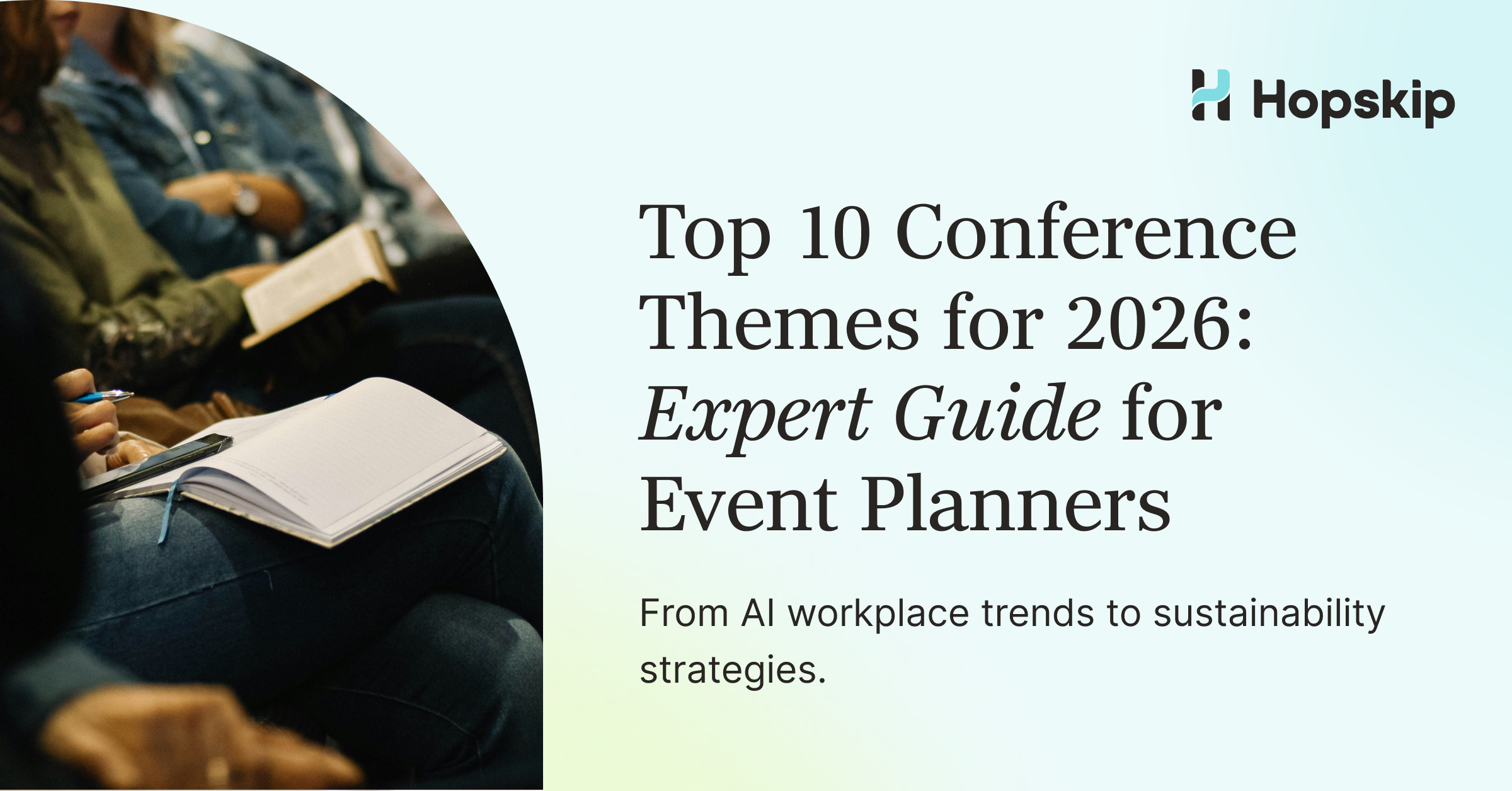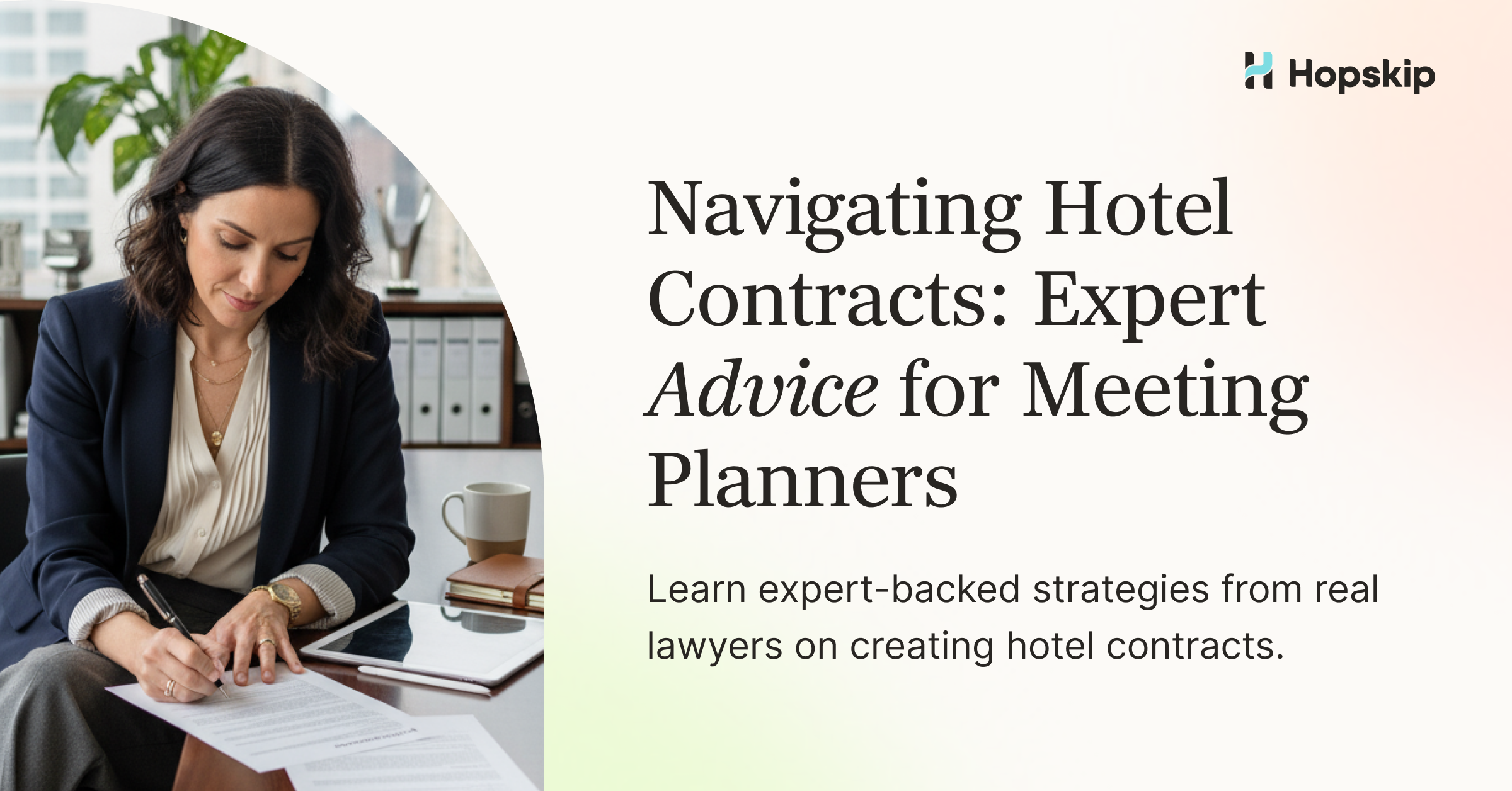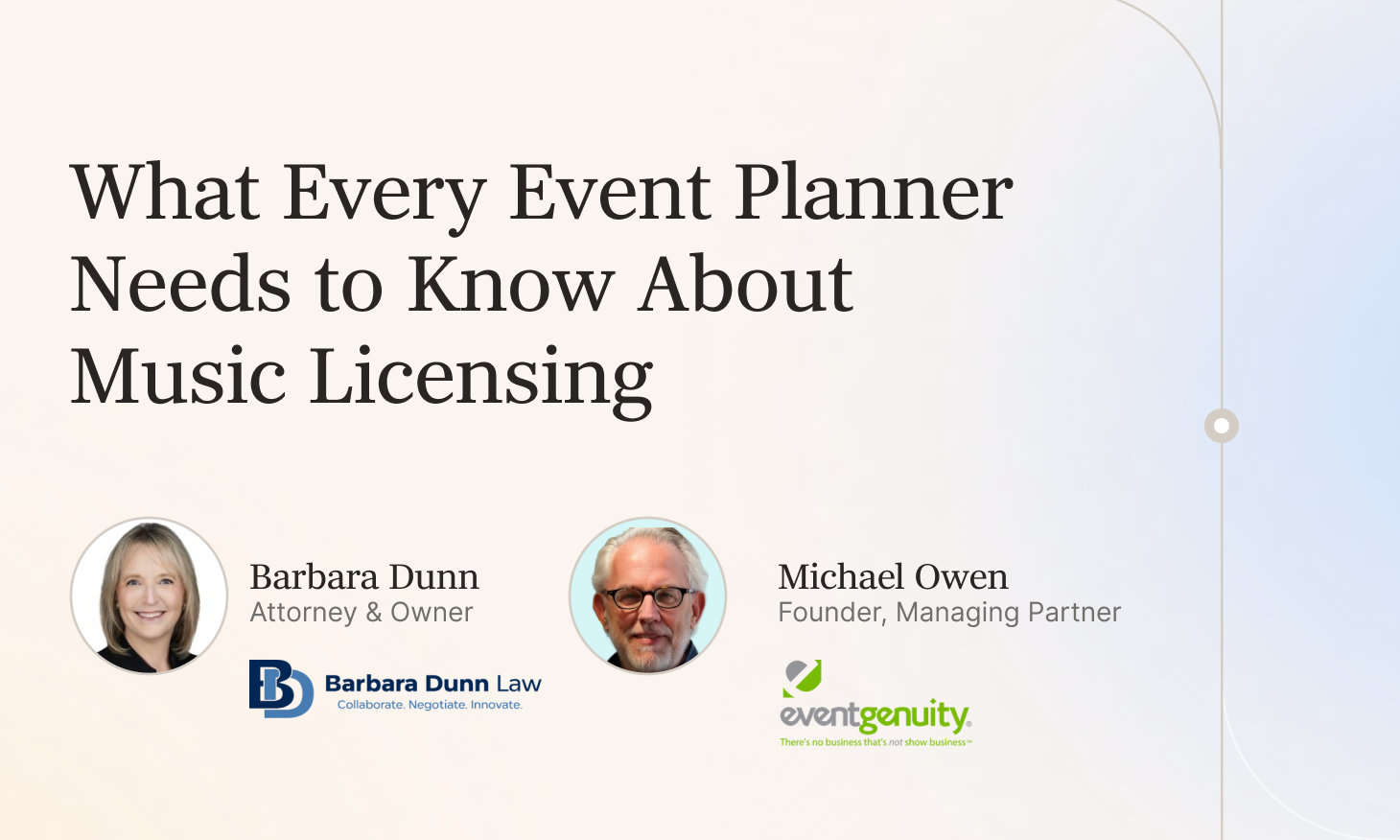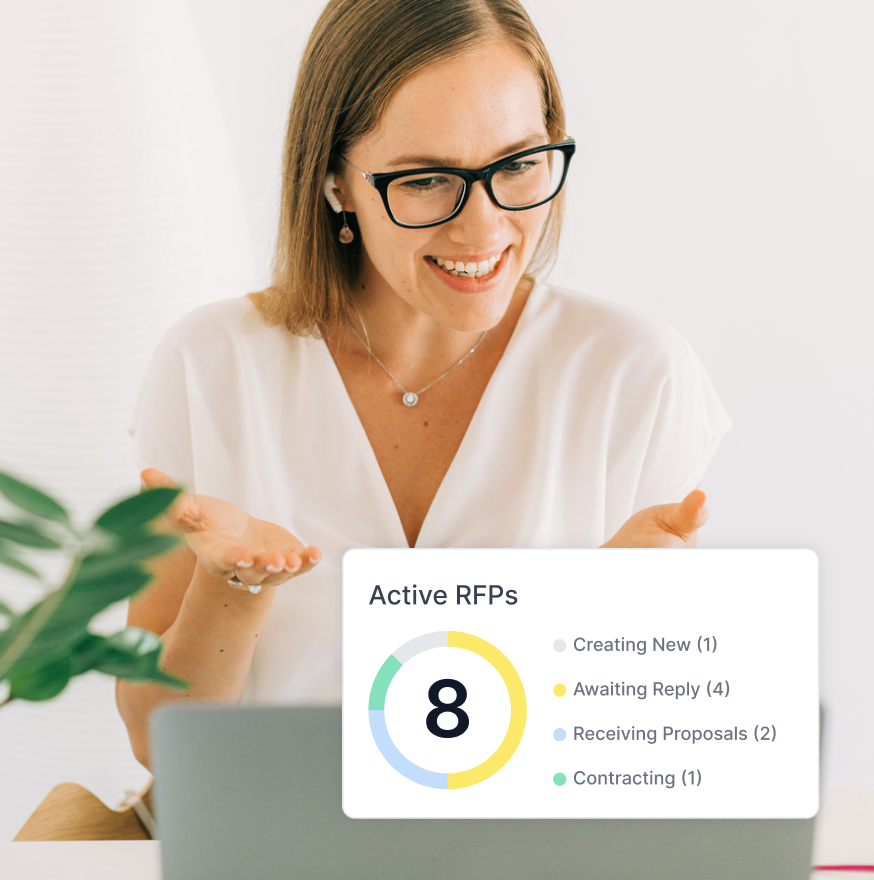Contracts
RFP Best Practices
7 Best Practices for Event Venue Sourcing: A Complete Guide for Corporate Event Planners
Kate Robertson
Sep 19, 2025
Planning a corporate event is never just about the agenda or the keynote speaker—it often starts (and succeeds) with the right venue. Yet for many corporate planners, sourcing venues still means juggling spreadsheets, endless email chains, and clunky RFP processes that eat up 30+ hours per event .
The good news? Venue sourcing doesn’t have to feel overwhelming. With the right approach—and the right tools—you can streamline the process, reduce stress, and deliver events that make you look like a superstar to clients and stakeholders.
Why Venue Sourcing Matters More Than Ever
Corporate event management isn’t just about finding a space—it’s about selecting venues that align with your strategic objectives while managing complex logistics, budgets, and stakeholder expectations. Yet many planners still rely on outdated methods that drain resources and create unnecessary stress.
The current challenge: Traditional venue sourcing involves manual processes that eat up valuable time, while modern event planning software solutions offer streamlined alternatives that most planners haven’t fully adopted.
In this guide, we’ll walk through seven best practices for venue sourcing, designed specifically for busy corporate event planners.
1. Define Strategic Event Goals Before Starting Your Venue Search
Before diving into event venue sourcing, step back and clarify your event’s primary objectives:
- Sales kickoffs: Focus on inspiration, motivation, and team building
- Leadership retreats: Prioritize privacy, intimacy, and collaborative spaces
- Client-facing events: Emphasize brand wow-factor and professional atmosphere
- Product launches: Require flexible spaces with strong AV capabilities
Pro tip: Create a venue requirements checklist that includes both functional needs (capacity, location, tech requirements) and strategic goals (brand alignment, attendee experience, budget parameters).
2. Create Comprehensive RFPs Using Templates and Best Practices
One of the biggest frustrations for hotels is receiving incomplete or vague event RFPs. Without proper details, their proposals miss the mark—or worse, they don’t respond at all.
Essential RFP Components:
- Event dates and flexibility windows
- Accurate guest count and room requirements
- Budget range and payment terms
- Room block specifications
- Food & beverage expectations and dietary restrictions
- Technology and AV requirements
- Setup and breakdown timelines
- Decision-making timeline
Time-saving strategy: Use event RFP templates to standardize your requests. Modern event planning software platforms often include customizable RFP templates that ensure consistency while saving hours of manual work.
Corporate planners using structured event management RFP processes report saving 30+ hours per event while receiving faster, more qualified responses from venues.
3. Compare Venues Apples-to-Apples with Standardized Evaluation
Stop wasting hours building comparison spreadsheets. Instead, establish a systematic process that normalizes all venue proposals into consistent formats.
Key Comparison Metrics:
- Total estimated costs (including all taxes, service charges, and hidden fees)
- Included amenities and concessions
- Contract flexibility and cancellation terms
- Technology infrastructure and sustainability features
- Location accessibility and parking
- Catering quality and dietary accommodation
Modern solution: Event planning software tools like venue sourcing platforms automatically organize proposals in standardized formats, eliminating the “apples to oranges” comparison challenge.
4. Balance Cost with Strategic Value
Lowest price doesn’t equal best value. A venue with slightly higher rates but stronger concessions—complimentary Wi-Fi, reduced attrition penalties, waived setup fees—often delivers superior ROI.
Value-Based Decision Framework:
- Stakeholder experience impact: Will attendees be impressed and engaged?
- Operational efficiency: Does the venue simplify logistics?
- Brand alignment: Does the space reflect your company values?
- Total cost of ownership: Include hidden costs, travel expenses, and time investment
Remember: Saving $5,000 on venue costs means nothing if attendees leave frustrated with poor AV or uncomfortable spaces. The cost of lost engagement far exceeds modest budget savings.
5. Prioritize Transparent Communication Throughout the Process
Hotels frequently report that after submitting detailed event RFP responses, planners disappear for weeks or months. This “black hole” effect damages relationships and reduces future cooperation.
Communication Best Practices:
- Set clear expectations for response timelines in your initial RFP
- Provide regular updates even if decisions are delayed
- Share feedback on proposals to help venues improve future responses
- Maintain professional relationships regardless of final decisions
Simple solution: A quick email—”We’re still reviewing proposals, thanks for your patience”—maintains goodwill and ensures venues stay engaged throughout your process.
6. Leverage Modern Event Planning Software to Streamline Operations
Legacy venue sourcing tools are often bloated, expensive, and built for far more than just sourcing. Today’s corporate planners need specialized event planning software that eliminates administrative burden and centralizes everything in one platform.
Key Features to Look For:
- Global venue database with 150,000+ searchable properties
- Kanban-style RFP tracking and workflow management
- Automated report generation and stakeholder presentations
- Side-by-side proposal comparison tools
- Template libraries for consistent RFP creation
- Integration capabilities with existing business systems
Time savings: Modern event venue sourcing platforms help planners save 30+ hours per RFP while reducing stress and enabling faster, more confident booking decisions.
Popular Event Planning Software Categories:
- All-in-one platforms: Comprehensive event management with sourcing capabilities
- Specialized venue sourcing tools: Focused platforms dedicated to venue discovery and RFP management
- Template-based solutions: Simple tools for RFP creation and vendor communication
- Enterprise integrations: Systems that connect with existing CRM and procurement workflows
7. Build Long-Term Strategic Venue Relationships
Every event is an opportunity to strengthen partnerships with hotels, venues, and destination marketing organizations (DMOs). These relationships become invaluable for future sourcing success.
Relationship-Building Strategies:
- Provide detailed post-event feedback on what worked well and areas for improvement
- Maintain regular touchpoints throughout the year, not just during active sourcing
- Share success stories and refer other planners when appropriate
- Negotiate preferred partner agreements for volume discounts and priority booking
- Include venues in industry networking and educational opportunities
Long-Term Relationship Benefits:
- Faster response times for future RFPs and urgent requests
- Preferred pricing and exclusive perks not available to one-time clients
- Priority booking access during high-demand periods
- Trusted advisor relationships for new market entry and venue recommendations
- Crisis support when last-minute changes or emergencies arise
Choosing the Right Event Planning Software for Venue Sourcing
With hundreds of event planning software options available, selecting the right platform depends on your specific needs, budget, and organizational requirements.
Evaluation Criteria:
- Specialization: Does the platform focus on venue sourcing or try to do everything?
- Database quality: How comprehensive and current is their venue information?
- User experience: Is the interface intuitive for your team’s skill level?
- Integration capabilities: Does it work with your existing technology stack?
- Support quality: What level of customer service and training is provided?
- Pricing transparency: Are costs predictable and aligned with your budget?
Free vs. Paid Solutions:
- Free event planning software: Good for small events and basic needs, but often limited in venue database size and advanced features
- Subscription platforms: Typically $1,200-$5,000 annually for comprehensive venue sourcing capabilities
- Enterprise solutions: Custom pricing for large organizations with complex requirements
The Future of Event Venue Sourcing
The event management industry continues evolving rapidly, with new technologies and approaches emerging regularly. Successful corporate planners stay ahead by:
- Adopting specialized tools rather than trying to manage everything in spreadsheets
- Building technology stacks that integrate venue sourcing with broader event management
- Developing data-driven approaches to venue selection and vendor relationships
- Investing in professional development to stay current with industry best practices
Conclusion: Transform Your Venue Sourcing Process
Event venue sourcing doesn’t have to be the bottleneck in your corporate event planning process. By implementing these seven best practices—from strategic goal setting to relationship building—you can take control of sourcing and deliver events that matter.
The key is moving beyond manual, time-consuming processes toward modern event planning software solutions that provide:
- Time savings of 30+ hours per event
- Improved vendor relationships through better communication
- Data-driven decision making with standardized comparisons
- Professional stakeholder reporting with automated tools
- Stress reduction through streamlined workflows
Ready to transform your venue sourcing? Start by evaluating your current process against these best practices, then explore event planning software solutions that align with your organization’s needs and budget.
Whether you’re managing intimate executive retreats or large-scale corporate conferences, these proven strategies will help you source venues faster, negotiate better terms, and deliver events that exceed stakeholder expectations.
Looking for a modern venue sourcing platform? Learn how specialized event planning software can save your team 30+ hours per RFP while improving vendor relationships and decision-making confidence.




